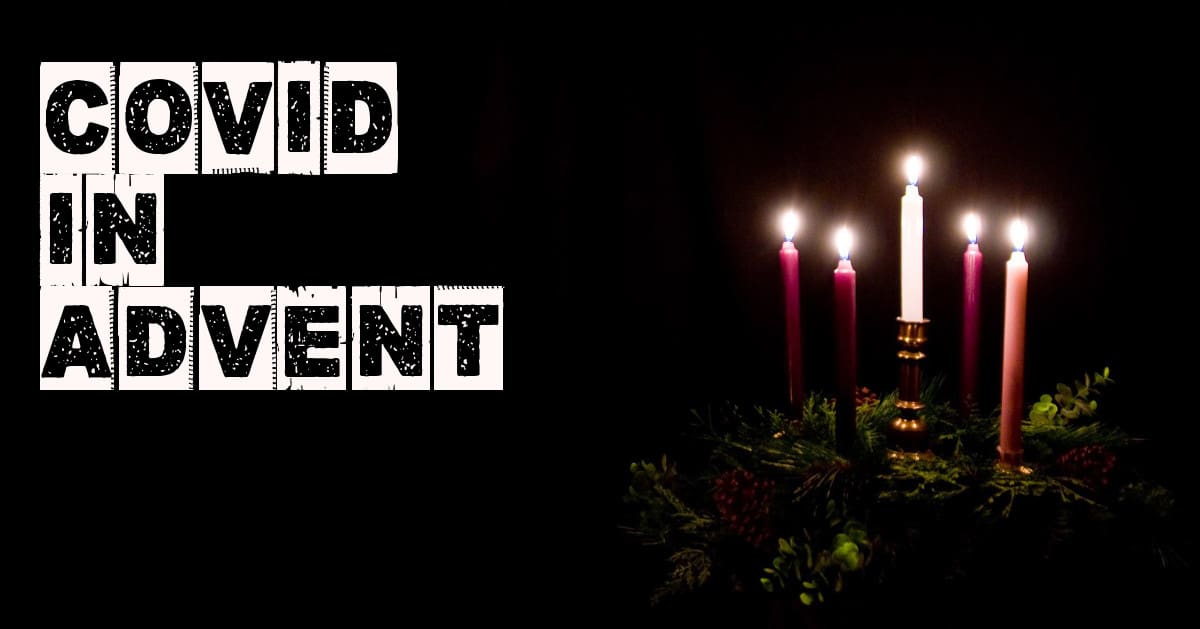Covid in Advent
My beloved aunt and godmother is 95 and living in a locked-down senior care facility. I haven’t been able to see her in 9 months. Thank you, COVID19.
I’m sure many of us have similar stories.
Masks and lock-downs, Zoom and closures. The hope for a vaccine. At times it seems we haven’t spoken of much else in a very long time. And maybe there’s not much about the pandemic that hasn’t been said at this point.
Two hours of UN TV on the subject the other day yielded nothing new, except to reaffirm that COVID19 is the greatest global health crisis we face, and that it is also a humanitarian crisis, a socio-economic one, a security issue and a human rights crisis. Recent webinars have shown clearly how the pandemic intersects with almost every issue we could think of: COVID and Human Rights, How COVID Impacts the UN’s 2030 Agenda’s Sustainable Development Goals, COVID and the Lack of Adequate Social Protection, etc.
And of course COVID and Homelessness. We five Vincentian Family NGOs (CM, DC, AIC, SSVP and the SC Federation) hosted a webinar on Cities and Evictions during the Pandemic, attended by 53 other NGOs. It is worth noting here that a group of Niagara University students presented us with excellent research on the issue that we will be able to use in future events.
So this is the context of the special season of Advent in this difficult year many of us would rather forget. However, maybe the Advent message this year calls us to see beyond how COVID19 affects us, reminding us that others are suffering much more than we, and that we should not forget other tragedies accompanying the virus. Advent is a time of waiting and yearning, not passively, but in an active sense, that of preparing ourselves for something. Or in this case, Someone, to be born again in our hearts and lives.
As always, with anything truly Christian, that means being aware of others, being compassionate, and where possible acting with them in mind. Although we should see and think globally, we should also see and act locally. Advent in this context can be an opportunity for a bit of advocacy.
Consider schoolchildren living in poverty, who do not have the laptops necessary for virtual learning, and are falling behind schoolmates of greater means. Is there a local way to address this need?
We might encourage the people we serve to donate to, or work with, foodbanks as food insecurity grows.
We can speak up when others discriminate against people of Asian origin by unfairly blaming them for the pandemic.
We can participate in advocacy efforts to end the alarming spike in domestic violence as claustrophobic “staying at home” takes a toll.
We could call or write our Congressional and local lawmakers to advocate for:
- An immediate end to the cruel practice of housing evictions during a pandemic crisis;
- A much-needed stimulus relief package and continuance of unemployment assistance;
- Changes in public policy to strengthen protection systems people need and want now that the virus has revealed them to be totally inadequate;
- A fair distribution of a vaccine, when fully tested and available. Perhaps there will be pledges to sign calling for equity in this regard.
The congregation is a global community. How can we show solidarity with developing countries, especially where confreres work, as they face the tragedies of this virus but without the resources and possibilities of wealthier countries?
Advent, a time of prayerful expectant waiting. But also a time of compassionate outreach for those who suffer most at this time, a great way to prepare and open our hearts to celebrate the Birth of the One who is Love Incarnate.
NOTE: Others might contribute to this indicative, non-exhaustive list, helping us all to be aware of pandemic issues and needs beyond our own.
Jim Claffey
NGO representative of the CM @ the UN
www.congregationofthemission-un-ngo
FB: congregation of the mission at the UN
Twitter: @cmunnyc







Right on! Thanks!